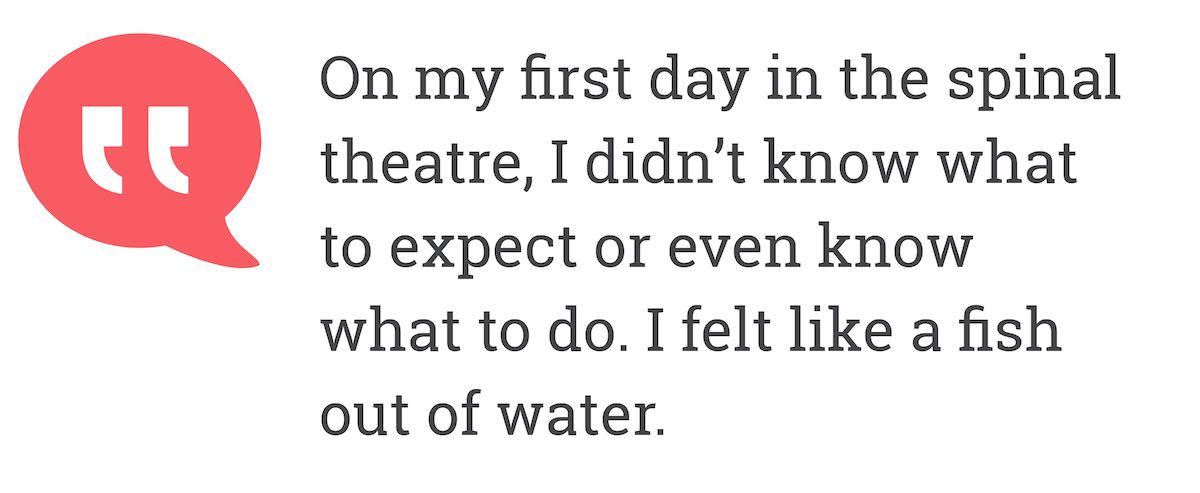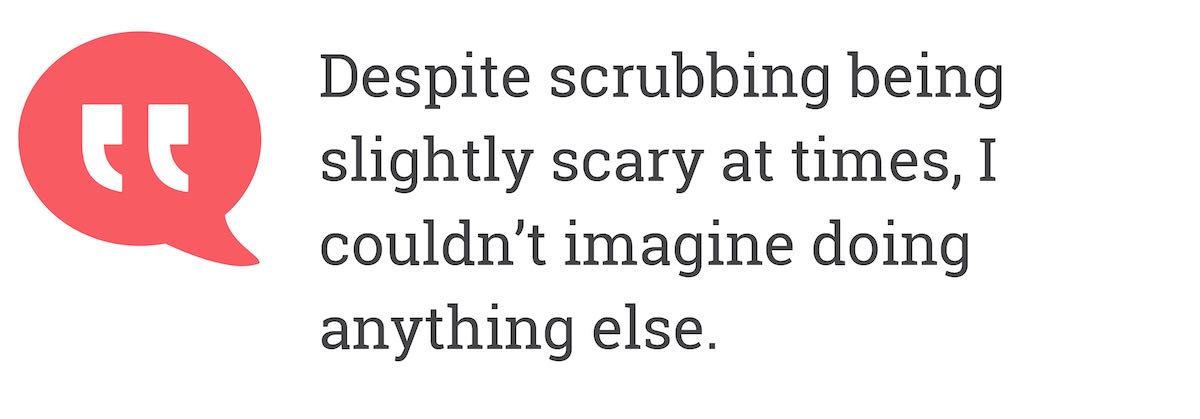 "On my first day in the spinal theatre, I didn’t know what to expect or even know what to do. I felt like a fish out of water." - Amira Begum, Scrub Nurse
"On my first day in the spinal theatre, I didn’t know what to expect or even know what to do. I felt like a fish out of water." - Amira Begum, Scrub NurseAmira explains how and why she became a Scrub Nurse, her first job interview, and specialising in spinal surgery. Plus, she provides fascinating insight into a typical day’s work in theatre.
Topics Covered In This Article
I Knew I Wanted To Work In Theatre
My Scrub / Theatre Nurse Job Interview
My Six Month New Starter Rotation Programme
My Home Theatre - Trauma & Orthopaedics
My First Spinal Procedure As A Scrub Nurse In An Operating Theatre
I Knew I Wanted To Work In Theatre
I qualified 12 months ago as an Adult Nurse and decided to go straight into theatres.
Most of my placements were general medical wards so when it came to applying for jobs, I wanted a change.
However, my only experience of theatres was when I went down with a patient (as a student nurse) for a surgical management of a miscarriage and I absolutely loved being in the theatre environment and that was the moment when I knew I wanted to work in theatres.










About this contributor
Health Protection Practitioner
I’m Amira, I qualified as an Adult Nurse over a year ago and I have been working in theatres since qualifying. I am an adult trained nurse working in a paediatric hospital. I specialise in spines, trauma and orthopaedics. Outside of work I am a keen baker and fitness enthusiast.
More by this contributorWant to get involved in the discussion?
Log In Subscribe to commentRuta Baltruniene
Ruta Baltruniene
3 years agoThanks Amira. Was very interesting to read your journey. Good luck 😉
Thanks Amira. Was very interesting to read your journey. Good luck 😉
read less
Thank you! ☺️
Rubiwa Begum
Rubiwa Begum
3 years agoWoohooo thats my neice i love you and we are so proud of u our babygyal!!! ❤🥰😍😘🤩
Woohooo thats my neice i love you and we are so proud of u our babygyal!!! ❤🥰😍😘🤩
read less